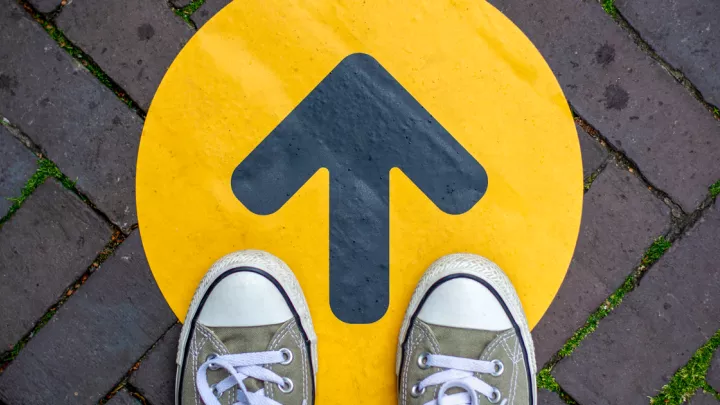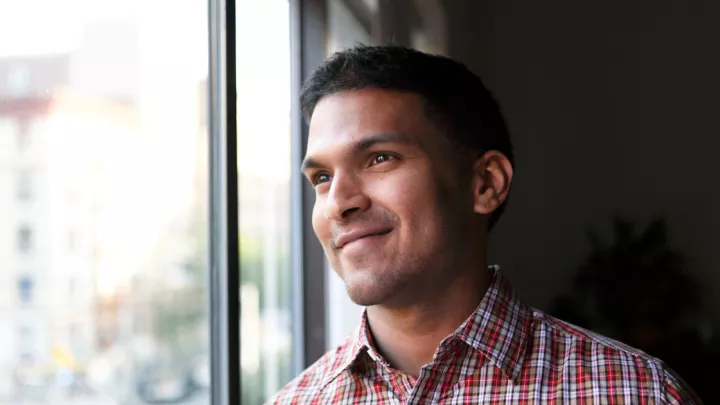5 questions to help you decide if your habits have become addictions

We all have habits, things we do routinely every day. Sometimes we do them automatically, with barely a second thought, such as brushing our teeth, taking a shower or making coffee in the morning. Then there are the good habits that we have to work harder to maintain, like exercising, making healthy food choices or getting enough sleep. And finally, there are the habits that may not be so good for us like overeating, smoking, gambling, gaming or overconsumption of alcohol.
So when do habits cross the line to addictions?
"Habits and addictions can be thought of as existing along a spectrum with the potential for both overlapping and distinguishing features," says Sara Zachman, MD, MPH, Nebraska Medicine addiction psychiatrist.
Both habits and addictions tend to involve a cue or trigger, which prompts a particular behavior and leads to a reward. In the case of a habit, this automatic cycle usually lacks significant deeper meaning or negative consequence, and as such, generally is easier to change, explains Dr. Zachman. An addiction, on the other hand, represents a pattern of behavior causing impairment or distress and is characterized by loss of control of a continued behavior despite negative consequences. Addictions are often more complex and may require professional help to break.
How to know if a habit has become an addiction
Sometimes it can be difficult to determine when a habit has become an addiction. Dr. Zachman suggests asking yourself these five questions to help you decide if you may have crossed that line. "Keep in mind, no one question can identify a behavior as an addiction," she says. "But hopefully these questions will help promote your curiosity. If you're feeling unsure, a professional can always help you to further explore a particular pattern of behavior."
- Has it become a compulsive behavior? Do you find yourself needing or craving it and you feel like you have lost the ability to stop the behavior?
- Are you preoccupied with this activity or substance, either mentally or based on the time in your day it consumes, so much so, that it prevents you from doing other things you need or want to do?
- Do you continue this behavior even though it causes negative consequences physically, mentally and/or socially?
- Do you have strong feelings about the behavior? Is it rooted in emotion and/or does it lead to feeling guilty or ashamed? Do you feel defensive and resistant when examining your behavior?
- Do you have a physical dependence to the substance? Have you developed a tolerance to it or experienced withdrawal without it?
Are some people more predisposed to addictions?
You've probably heard people say, "he or she just has an addictive personality." However, according to Dr. Zachman, "there is currently no consensus that ‘an addictive personality truly exists. Instead, addictions can affect anyone and appear to be the result of a combination of biological, psychological and social factors, perhaps to different extents for different people."
Some things can predispose someone to develop addictions such as genetics, co-occurring psychiatric disorders or socioeconomic factors, as well as stress and isolation, she says. Likewise, feeling supported, connected and having a purpose may provide some protection against addictive behavior.
Why are addictions so difficult to change?
A critical component of these two behaviors is how the two affect the brain.
Habits classically have been traced to the basal ganglia, an area of the brain involved in pattern recognition, memory making and emotions. Habits create a neural pathway in our brain that can quickly and easily be accessed, explains Dr. Zachman. These pathways kick in when we perform common daily tasks like eating, driving and going to work, thereby freeing us of the need to constantly maintain our attention and effort, which otherwise would be exhausting.
Addictions have been linked to the basal ganglia too, but they also affect several other areas of the brain, including the prefrontal cortex, hippocampus and amygdala, notes Dr. Zachman. These areas of the brain can potentially influence behaviors like decision making, impulsivity, motivation, learning and reward, making that addictive behavior more difficult to break.
The most common addictions, and those formally recognized by the American Psychiatric Association's Diagnostic and Statistical Manual, are addictions to substances, gambling and internet gaming.
How to change a habit or addiction
The good news is that the brain has neuroplasticity, meaning it can change and adapt over time with support, conviction and sometimes treatment.
"To achieve a sustained change, start by getting curious about your behavior and stay compassionate towards yourself throughout any process of change," Dr. Zachman says. "You will be most successful if you are motivated to change and have come up with your unique reasons to do so." Dr. Zachman recommends considering these eight steps to help you retrain your brain and break a habit.
- Identify the cues that trigger you to repeat this behavior. Maybe it's stress, a smell or sound, a particular person, place or time, or a certain ritual in your routine.
- Once you have identified the cues, experiment with changing your routine to avoid these cues. For example, if coffee makes you want to smoke a cigarette, skip the coffee or replace it with something else.
- Replace the behavior you're looking to change with a positive one to help break that neural pathway associated with the old habit. Instead of drinking a cup of coffee with a cigarette, try going for a jog. It also helps to put more layers between you and the behavior you're trying to avoid, such as not keeping cigarettes in your house.
- Keep the new habit simple and specific, potentially breaking it down into smaller steps to allow your brain to more easily adapt and allow the new behavior to become part of your autopilot routines.
- Be sure to reward your efforts, likely by finding a new reward to replace the old one. As an idea, you could use the money you saved on cigarettes to treat yourself to a night at the movies.
- Loop in your friends and/or family, who may even team up to make a change with you. If the people in your life know your goals, they can offer both support and accountability.
- Focus on the long term. Think about how changing this habit is consistent with your values and an investment in your future.
- Be persistent. Remind yourself of times you may have been successful at making changes in the past. Go easy on yourself when you have a setback, then get back on track and remember change is possible.
As mentioned, addictions can be more difficult to change and for some people, breaking an addiction may require professional help. "This is nothing to be ashamed of," says Dr. Zachman. "Many people need a little extra help and asking for it is ultimately a courageous sign of strength. Recognizing that you are dealing with addiction and wanting to change are big steps forward in accessing available help."







